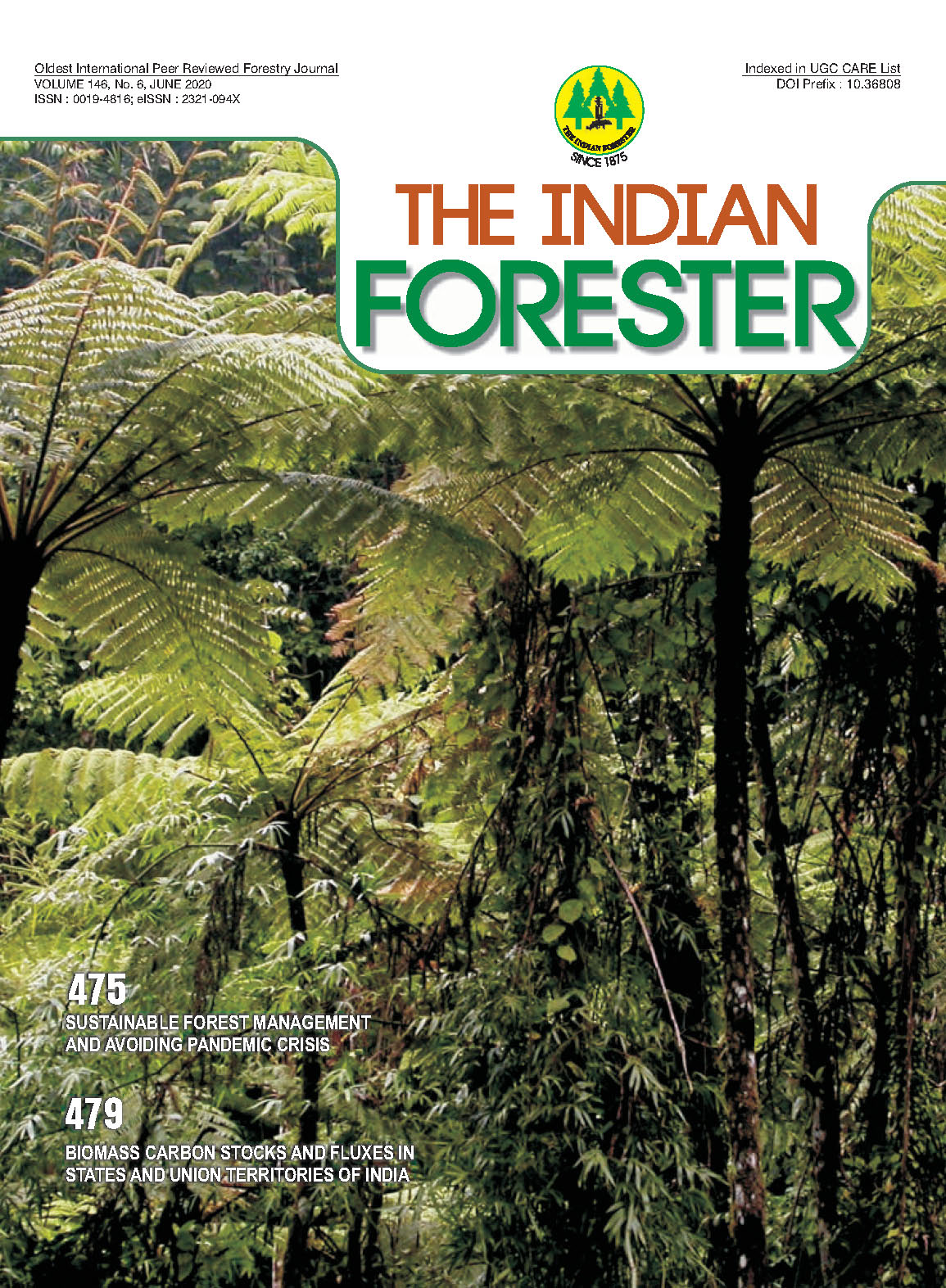Sustainable Forest Management and Avoiding Pandemic Crisis
DOI:
https://doi.org/10.36808/if/2020/v146i6/153385Keywords:
Pandemic, Covid-19, Wildlife, Trafficking, Behavioral Distancing.Abstract
Forests are a unique gift from nature to man. They are the most biologically-diverse ecosystem on land and home of more than 75% of terrestrial species of animals, birds, plants and insects. They store about 296 Giga ton of carbon and counter climate change. They conserve soil, fix nitrogen and add organic matter to improve soil fertility. Forested watersheds and wetlands supply 75% of fresh water. They clean air and water, provide critical wildlife habitat, and make the planet a healthier place to live. Deforestation, climate change, poaching of wildlife, capturing them and their illegal world trade are worrisome. Due to the consumption and exposure of meat from the "wet market" or unnatural reproduction of animals, their deadly viruses are spreading in humans by spreading global epidemics. In the years 2003 to 2019, three global epidemics were encountered. The Covid-19 epidemic has disturbed the entire world. To avoid global epidemics in the future, sustainable forest management and allowing wildlife to live in the forests is absolutely necessary for public welfare.References
Agenda (2030). Sustainable Development Goal -15 Life on land … Sustainably Manage forests … halt biodiversity loss.
David Quammen (2020). “How we made the Coronavirus Pandemic†published in Sunday Times of India April 5, 2020.
Tewari, D.N. (2019). “Paryavaran, Satat Vikas Evam Jeevan†in Hindi, published by Granth Academy New Delhi 2019.
Forest Survey of India, Dehradun, Ministry of Environment, Forests & Climate Change, India State of Forest Report 2019.
FAO of the United Nations (2015). Global Forest Resources Assessment 2015.
FAO of the United Nations (2018). The State of The World's Forests Forest Pathways to Sustainable Development.
Muthoo, M.K. (2017). Forests, Sustainable Development Goals and Climate Change published in the book “Forests & People†edited by Dr D.N. Tewari and printed and published by Ocean Book Pvt Ltd New Delhi.
Downloads
Downloads
Published
How to Cite
Issue
Section
License
Unless otherwise stated, copyright or similar rights in all materials presented on the site, including graphical images, are owned by Indian Forester.





